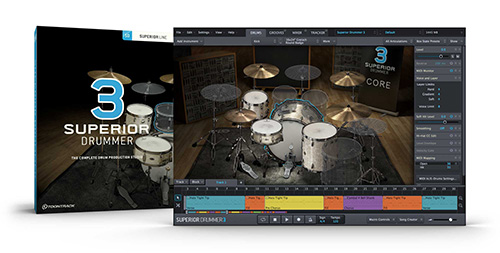

But when it comes time to drop the MIDI files you’ve created into your host DAW, if you didn’t line them up to begin with, you’ll have to re-align them. You can almost think of Tracker as being a DAW within a DAW, in the sense that you can have them synced (via the Follow Host button at the bottom) or you can run it entirely independently. So before you export or bounce the drum files, be sure to consolidate them so they start right from zero – this will keep your parts in sync with the rest of the session. It’s important that your files start at the beginning of the session so they will align with the song when you import them to Tracker. In order to get your drum sounds from your DAW into Tracker (which resides in your DAW as a tab in SD3), you must first export the files first, and then either re-import them with the Add button, or drag them into Tracker from your desktop. SD3’s Tracker is a killer feature that turns close-mic’d drum audio files into sample-accurate triggered MIDI.

I’m gonna keep this short and simple, because if you’re searching for something like this, you’re probably frustrated and want answers fast. This is the first in our series of tutorials on the new Superior Drummer 3 from Toontrack.


 0 kommentar(er)
0 kommentar(er)
